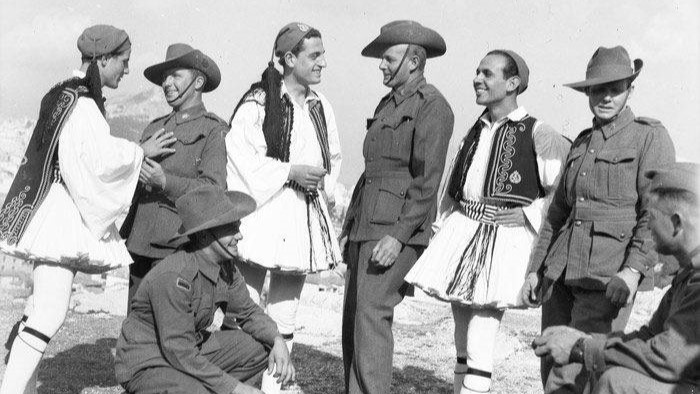Every year on October 28, the Greek people, including the diaspora, commemorate ‘OXI’ (NO) Day – the anniversary of the historic response of Greeks against Nazism, Fascism and Totalitarianism during WWII.
On October 28, 1940, Greece said ‘NO’ to an Italian Fascist invasion, pushed them back and gave the Axis Powers their first defeat.
To discuss the legacy of this historic day and its influence on post war migration to Australia, The Greek Herald spoke with Nick Andriotakis, the Secretary of the Joint Committee for the Commemoration of the Battle of Crete and the Greek Campaign. This is what he had to say.
1. What was the role of the Anzacs in Greece during WWII?
On the early hours of October 28, Italy gave then-Greek Prime Minister Ioannis Metaxas an ultimatum to enter Greek territory and occupy certain unspecified “strategic locations” or otherwise face war.
That morning throughout Greece, the Greek people ran out to the streets and defiantly said OXI or ‘No.’ Thereafter, the Greek army defeated and pushed back the Italian invader into Albania. This was the first defeat of an Axis power and it was clear Greece, along with the United Kingdom, were the only counties that had successfully resisted invasion by the Axis powers.
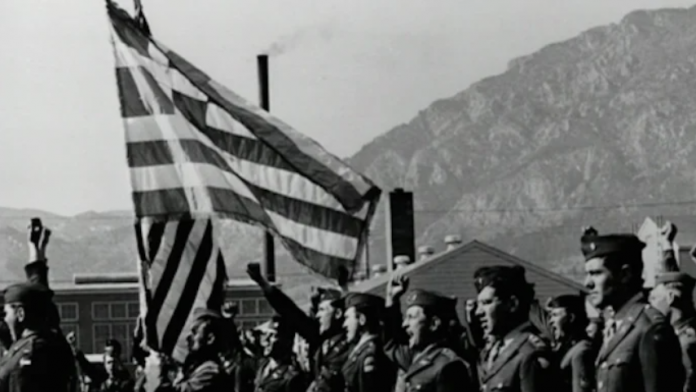
Because of the Greek victory, Hitler decided in early 1941 to invade Greece to support fascist Italy. The UK, as an ally of Greece, garnered support from all over the Commonwealth to assist the defence of Greece by the invasion of Germany and Italy. Commonwealth forces, including 34,000 men and women from Australia and New Zealand, volunteered and together with the Greek Defence Forces formed an integral part of the defence of Greece.
On April 6, 1941, the 2nd Anzac Corps was formed by General Blamey in Macedonia. The Anzacs traversed nearly 1,000 kilometres of Greece’s mountainous terrain whilst fighting the Germans and engaged in the Battles of Vevi, Tempe, Thermopylae/ Brallos and finally, in the Battle of Crete. From OXI Day 1940, the Greeks, together with the support of the ANZACs and Commonwealth Allies, resisted for over seven months the invasion of the Axis Powers.
Part 1 of the OXI legacy: The unquestionable defiance and recognition of the invasion by the Greek people and the immediate defence of the country.
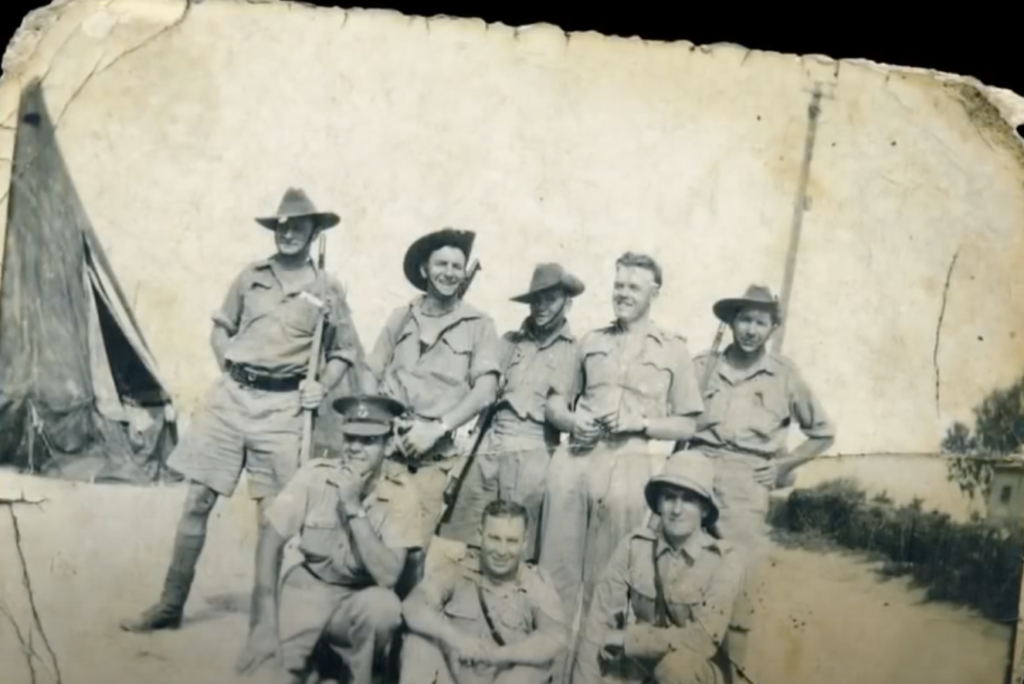
2. How would you describe the relationship between the Anzacs and Greeks during WWII?
Greece and its people were a total surprise for the Anzacs following their experiences in North Africa and the Middle East. The Anzacs were warmly welcomed as heroes by the Greek people with flowers and food. During the war, many Greeks harboured and supported Anzac escapers and evaders at great cost to their lives and property.
The combined experience under the horrors of war created unbreakable bonds between Australia, NZ and Greece that endure to this day. Many Anzacs would return to Greece in the post war period and when people heard who they were, Greeks would spontaneously pay their bills at restaurants, petrol stations and hotels. Such was the admiration of the Anzacs of Greece and their legacy. The experiences and friendship of Anzacs and Greeks formed during WWII in Greece contributed to the shaping of post war societies in Greece and Australia.
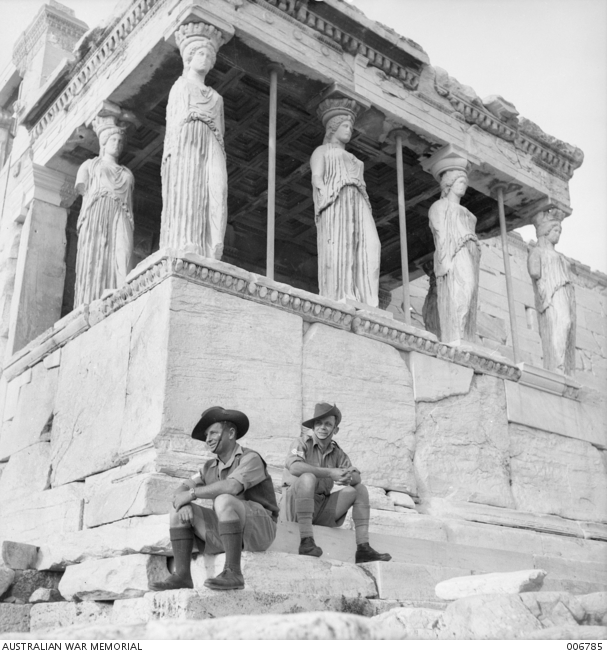
3. What are your top four lesser-known Anzac stories?
- Anzac Greek Marriages: Many Anzac men and Greek women met during the war as Greek families would hide and support the Anzacs left behind after the evacuation. In many cases, the Anzacs became close with these families and after the war continued to correspond by letters with them. Some of the letters were addressed to young women and through the shared experience, romantic bonds developed. The Anzacs sponsored many Greek women to come to Australia and NZ in the post war period and married them.
- Greek Australian Anzacs in Greece during 1941: Some 2,500 Australians of Greek heritage enlisted in WWI and WWII. These were Greek migrants or the offspring of Greek migrants that had come to Australia around the turn of the 20th century, driven out by earlier conflicts such as the Balkan Wars, the Greco Turkish Wars and WWI. Some of these fought in Greece, in particular Constantine Aroney. Born in Greece, Aroney enlisted for Australia and fought in both World Wars. In WW1, he enlisted in 1915 at age 21 and served in the 1st Anzac campaign in Gallipoli and then onto France and Belgium. In WWII, he enlisted again and served in the 2nd Anzac Campaign in mainland Greece and on Crete. While serving in Greece, Aroney’s cultural background proved extremely valuable with his knowledge of the Greek language and customs. Retreating from the Greek mainland, he managed to escape to Crete in an open boat, taking 23 other soldiers with him, whom he cared for with the help of Greeks on Crete – a heroic feat for which he was awarded the British Empire Medal. Aroney is one of only a handful of ‘Dual Anzacs’ that served in the two Anzac Campaigns which both involved Greece.
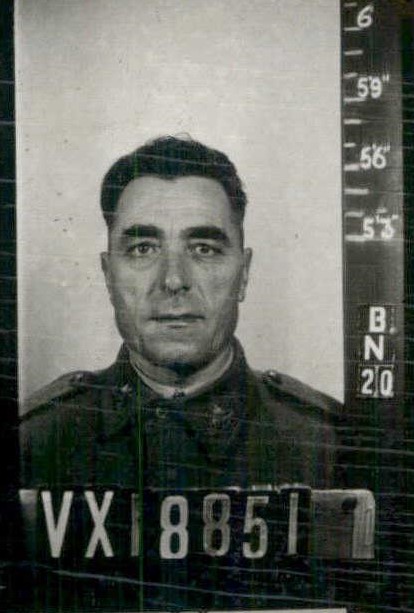
- Australian nurses in Greece: Australian nurses have served in Greece in three conflicts. They served in 1915 on Lemnos, during 1916 on the Salonika Front and in 1941 during the Battle of Crete and the Greek campaign. The courage, tenacity, resilience and significant contribution of these women has never been fully acknowledged. Currently much is being done to recognise the roles of these unsung Aussie heroines.
- Anzac Resistance Fighters: Little is known of Anzacs that evaded capture and hid in the mountains of Greece fighting with Greek resistance fighters after the Nazi takeover. Anzac Richard Sydney Turner of Rozelle, NSW served in Greece and was captured by the Germans near Megara. After being taken to a prison camp, he was put on a train for deportation to Germany but jumped off and escaped. He roamed the mountains south of Thessaly living in caves and at one point in a hollow tree. Weak from malnutrition and malaria, he was considering giving himself up when he met Greeks who took him in and looked after him. In 1943, after regaining his strength, Turner joined the Greek resistance (ELAS), becoming the leader of fifty Greek Andartes (resistance fighters). Turner was awarded the Military Medal by Australia for the resistance work he carried out in Greece. On Sunday, December 17, 1944 he was scheduled to fly home from Athens and sat in the back of a truck going to the airport. He was killed by Greek communist insurgents who opened fire from a brewery as the truck passed by. He is buried in the Commonwealth War Cemetery at Phaleron, Athens.
Part 2 of the OXI legacy: The determined and continued resistance to the invasion by common men and women within Greece and the final removal of the invaders 1940-1949.
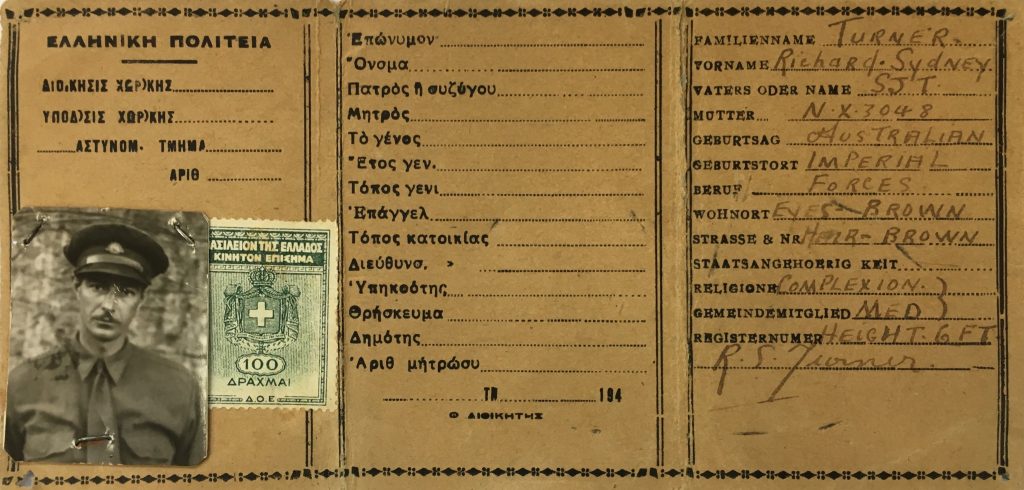
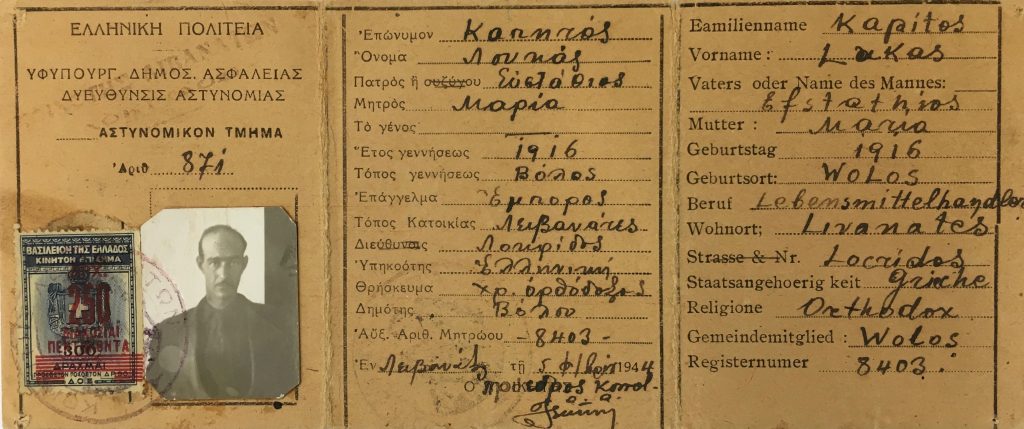
4. How did OXI Day influence the post war migration of Greeks to Australia and other places?
From OXI Day (October 28, 1940) until 1949, Greece was invaded by four countries suffering a significant loss of its population, massive destruction to its infrastructure, dislocation and fragmentation of society, and experienced a political vacuum resulting in the civil war. The villages, towns and cities had lost 10 percent of their population due to war fatalities, war crimes against humanity and starvation. Many children were orphaned and many had lost family members. The generation of Greeks born between 1930 and 1940 had suffered much, grew up in traumatic circumstances and had little or no education. By the 1950s, this generation were tenacious, resilient, young Greek men and women shaped by a tough and difficult upbringing but also had dreams of a better life that could not be fulfilled for all of them by a country not yet recovered from the ravages of WWII. This new generation wanted to set up their future through new opportunities and looked to the far corners of the earth. Many Anzacs supported them either behind the scenes, encouraging the government to accept Greek migrants, or personally sponsoring them.
Part 3 of the OXI legacy: The creation of the post war Greek diaspora.
5. Why do you believe the Anzac legend and OXI Day should continue to be commemorated in Australia?
OXI Day is the resurrection of the defiant Greek spirit of freedom always present in Greece. When Greece is threatened of invasion by larger superior empires and nations full of hubris, this spark ignites and the Greeks say OXI – No. Think for example, the invasions at Salamis, Thermopylae, Marathon and Platea, and the Greek War of Independence in 1821. In all cases, tenacious outnumbered Greeks defended themselves against larger and more imposing invaders and OXI 1940 is the latest resurrection of this eternal spirit of freedom. The message of OXI was a lightning rod to similar-thinking people like British, Australians and New Zealanders who came to the aid of Greece. As described above, the journey after OXI resulted in the establishment of the post war Greek diaspora.
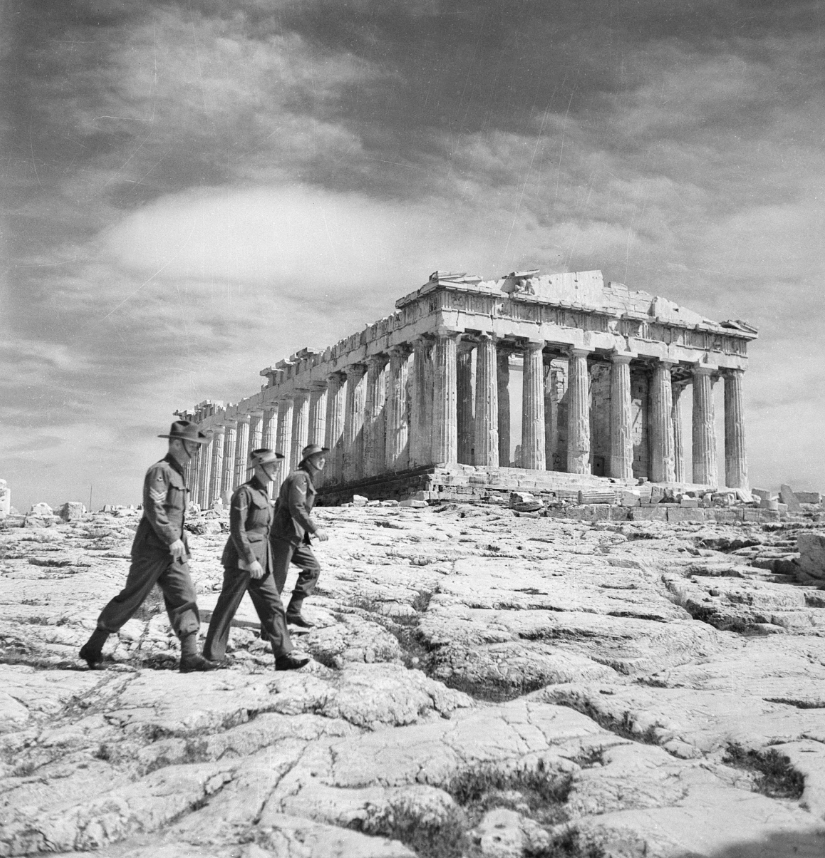
The legacy of OXI is within living memory and is very much linked to Australia through the 2nd Anzac Corps. In Australia, OXI Day deserves and should be commemorated much more than what it currently is.
Part 4 of the OXI legacy: The education and commemoration of OXI Day to inspire and encourage humanity to be free from authoritarianism.
6. Is there anything else you’d like to say?
Today we see OXI again in the defiant stance of Ukraine against the invasion by Russia. The force of an authoritarian will by Russia against a neighbouring Ukraine wanting to chart an independent future. History is repeating!
Some 1,686 Anzacs from both world wars (including Lemnos Salonika WWI) lie in Greece, of which nearly half were never found, or their remains identified.
I encourage all Australians who have an Anzac ancestor or are of Greek heritage to support a free and open society to engage, learn, commemorate, and continue the legacy of the unbreakable bonds of Australians and Greeks that started from OXI Day.
READ MORE: ‘The Anzacs had great respect for Greece’: Nick Andriotakis details the enduring relationship.

